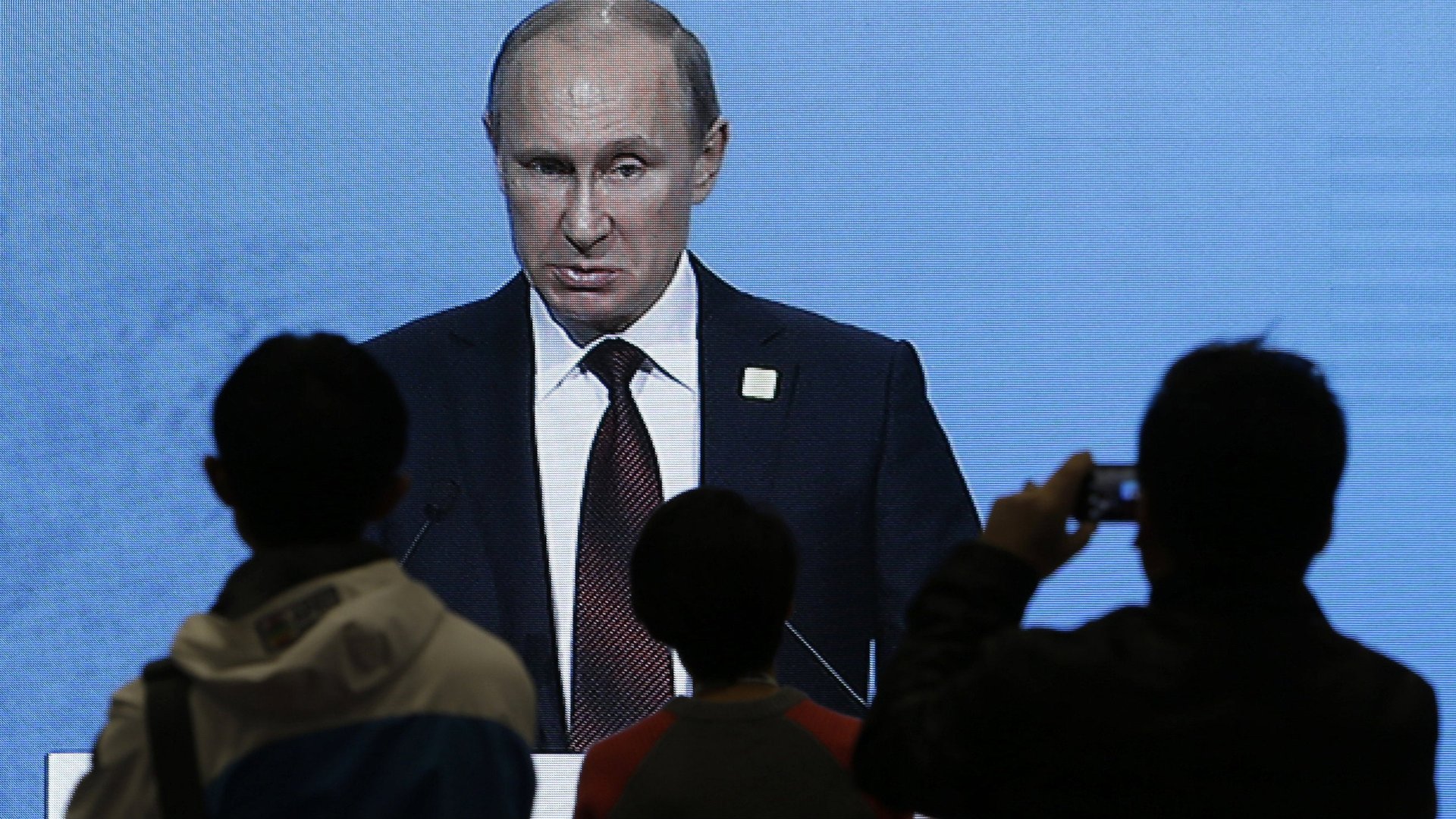Putin’s latest gas deal highlights yet again that China is in the driver’s seat
China and Russia have signed a second big gas deal. But the hoopla may be premature—it’s highly preliminary, and the two countries still appear not to have worked out the kinks from the last enormous deal they signed.


China and Russia have signed a second big gas deal. But the hoopla may be premature—it’s highly preliminary, and the two countries still appear not to have worked out the kinks from the last enormous deal they signed.
Instead, the Nov. 9 accord, under which Russia will supply China with 30 billion cubic meters of gas a year, highlights China’s considerable leverage and apparent objective of extracting valuable energy assets as a price for bailing Russian president Vladimir Putin out of his row with the West.
Even though crucial details such as price haven’t been decided, Putin already has conceded a prize to China—a 10% stake in Vankor, a 3.6-billion-barrel oilfield that already produces 440,000 barrels a day. Some analysts say Putin’s award of Vankor illustrates Russia’s straits: unlike the highly complex Arctic and Siberian fields that Moscow has typically dealt to foreigners the last two decades, Vankor has relatively simple geology and requires no special knowledge or equipment. In other words, it is stunning—and highly uncharacteristic—for Putin to offer up a gem like Vankor as an opening move, and begs the question of what China will force him to surrender in the usually harder, final stages of negotiation.
Putin is going to these extremes for a few reasons, including low oil prices and the weak ruble. But in his dealings with China, there is also an impulse to send a message to the West of an evolving new center of political and economic gravity, and a warning to stop taking its global influence for granted.
“It’s pretty clear the Russian side needs this more than Chinese,” Edward Chow, a senior fellow at the Center for Strategic and International Studies, tells Quartz via email.
The deal comes six months after what was promoted as a blockbuster, $400 billion natural gas deal between Russia and China. In the ensuing months, analysts began to cast doubt on the deal, saying that, contrary to how it was portrayed, it did not seem to have been finalized. Their assertions flew in the face of Chinese and Russian public statements at the time and thus the media, including Quartz, ignored them.
But now it appears that the doubters were right—for starters, the details appear to be unsettled for a crucial $25 billion Chinese cash payment to Russia. Second, the price of the gas may be linked to how that payment is doled out, and thus a lot less decided than depicted.
Of course, none of this has prevented the second deal from being signed and trumpeted.
“Cooperation between China and Russia is utterly important in order to keep the world within the limits of international law, to make it more stable, more predictable,” Putin said Nov. 9 in an appearance with Chinese leader Xi Xinping.
Xi and Putin are said to get along quite well, but the Chinese leader did not confirm the Russian’s view of their geopolitical relationship.